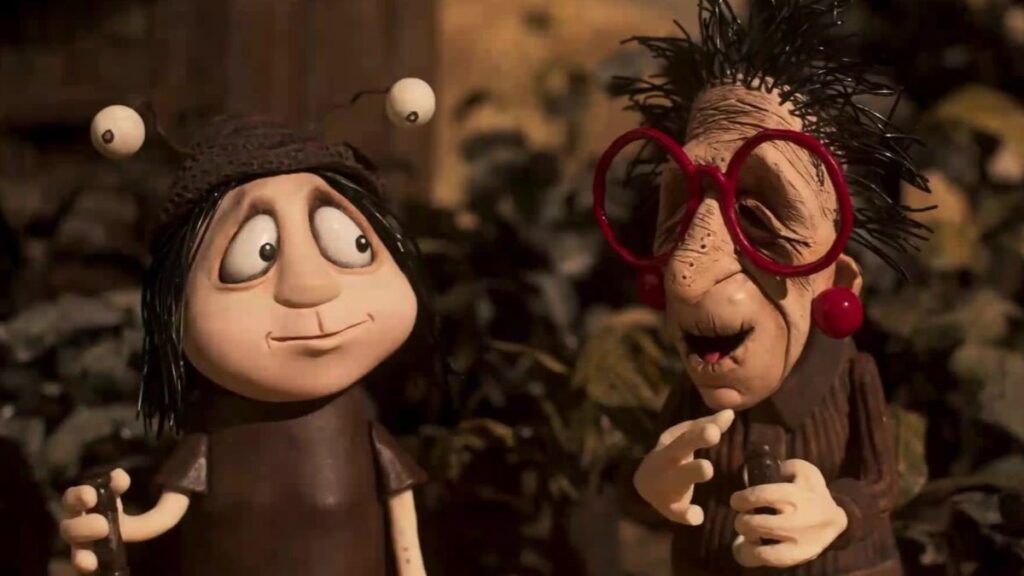“Life can only be understood backwards, but it must be lived forwards.”
A Kierkegaard quote may strike one as an unusual jumping-off point for an animated movie in 2024. But then very little about the animated movies of Adam Elliot is usual. His peculiar combination of chunky, dull-hued stop motion, piercing pathos, and adult-leaning black comedy feels like its own combination of distinct animation styles. A bit of Aardman, a bit of Pixar, a bit of Bill Plympton. And yet his work is distinctively his own. Swinging wildly between blue humour and emotional poignancy with such confidence and singularity of spirit that you can’t help but swing along with him.
Grace Pudel (voiced by Sarah Snook) is an introverted, snail-obsessed young woman caring for her eccentric elderly friend Pinkie (voiced by Jacki Weaver). When Pinkie dies, Grace, burdened by one tragedy after another in her short life, heads to Pinkie’s backyard vegetable patch. Where she releases her small snail collection and begins recanting to them the story of her life.
Memoir of a Snail is told, thus, largely in extended flashbacks. We follow Grace from a happy but difficult childhood living with her twin brother and disabled father. Through an adolescence marked by increasing isolation, into an adulthood characterised by various encumbering missteps. Misfortune plagues young Grace, despite her warm heart and desire to harbour a positive outlook. As the hope of regaining the happiness of her pre-pubescent years subsides, so too does this outlook.
Elliot is a most astute writer of stories. As he’s demonstrated in an admittedly limited output over a career now brushing up on 30 years. Stop motion animation is extremely time-consuming, after all. They both illuminate the neurodivergent experience (Grace is never identified as such, but is clearly coded as autistic) and combine edgy comedy with crushing tragedy.
Indeed, as the absurdity of living with grief and disappointment is identifiable to most if not all watching his movies, their juxtaposition and entwinement in Memoir of a Snail is therefore far more affecting. It’s also sharper in its effect. One minute we’re laughing at a hasty marriage proposal written in ketchup. The next we’re crying at the arrival of heartbreaking news. Only with Elliot’s remarkable perceptiveness, sincerity, and compassion for his characters can a gambit like this pay off. And only for the coldest-hearted viewer will it not.
Grace comes to understand her life from one end of it (as each of us is perpetually at the furthest end of our lives to date). Seeing the mistakes she’s made, but also the mistakes that have befallen her by chance with painful clarity. Each new indignity has forced an already reclusive girl further into her shell. To the point that, by the time she sits down in Pinkie’s backyard, she’s been stuck, practically motionless, repeating the same silly errors over and over for years.
But, as Memoir of a Snail informs us alongside the above Kierkegaard quote, snails can only move forwards. Grace’s memoir is often a difficult one to hear. Often hilarious, always enormously relatable (at least for this similarly introverted, autistic reviewer). But it’s at one end of her life to date, and at another of her life yet to come. It’s hard, after swinging along with Elliot and Grace for 90 lovely minutes. Not to feel that very same hope that she yearns to regain. And not to decide to make like a snail and move forwards, live forwards. This is a delightful movie, rich in humour, artistry, and genuine feeling.

